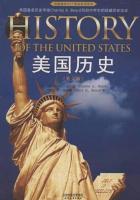
第29章 CONFLICT AND INDEPENDENCE(4)
The Repeal of the Stamp Act and the Sugar Act.-The effect of American resistance on opinion in England was telling.Commerce with the colonies had been effectively boycotted by the Americans;ships lay idly swinging at the wharves;bankruptcy threatened hundreds of merchants in London,Bristol,and Liverpool.Workingmen in the manufacturing towns of England were thrown out of employment.The government had sown folly and was reaping,in place of the coveted revenue,rebellion.
Perplexed by the storm they had raised,the ministers summoned to the bar of the House of Commons,Benjamin Franklin,the agent for Pennsylvania,who was in London."Do you think it right,"asked Grenville,"that America should be protected by this country and pay no part of the expenses?"The answer was brief:"That is not the case;the colonies raised,clothed,and paid during the last war twenty-five thousand men and spent many millions."Then came an inquiry whether the colonists would accept a modified stamp act."No,never,"replied Franklin,"never!They will never submit to it!"It was next suggested that military force might compel obedience to law.Franklin had a ready answer."They cannot force a man to take stamps....They may not find a rebellion;they may,indeed,make one."
The repeal of the Stamp Act was moved in the House of Commons a few days later.The sponsor for the repeal spoke of commerce interrupted,debts due British merchants placed in jeopardy,Manchester industries closed,workingmen unemployed,oppression instituted,and the loss of the colonies threatened.Pitt and Edmund Burke,the former near the close of his career,the latter just beginning his,argued cogently in favor of retracing the steps taken the year before.Grenville refused."America must learn,"he wailed,"that prayers are not to be brought to sar through riot and sedition."His protests were idle.The Commons agreed to the repeal on February 22,1766,amid the cheers of the victorious majority.It was carried through the Lords in the face of strong opposition and,on March 18,reluctantly signed by the king,now restored to his right mind.
In rescinding the Stamp Act,Parliament did not admit the contention of the Americans that it was without power to tax them.On the contrary,it accompanied the repeal with a Declaratory Act.It announced that the colonies were subordinate to the crown and Parliament of Great Britain;that the king and Parliament therefore had undoubted authority to make laws binding the colonies in all cases whatsoever;and that the resolutions and proceedings of the colonists denying such authority were null and void.
The repeal was greeted by the colonists with great popular demonstrations.Bells were rung;toasts to the king were drunk;and trade resumed its normal course.The Declaratory Act,as a mere paper resolution,did not disturb the good humor of those who again cheered the name of King George.Their confidence was soon strengthened by the news that even the Sugar Act had been repealed,thus practically restoring the condition of affairs before Grenville and Townshend inaugurated their policy of "thoroughness."
Resumption of British Revenue and Commercial PoliciesThe Townshend Acts (1767).-The triumph of the colonists was brief.Though Pitt,the friend of America,was once more prime minister,and seated in the House of Lords as the Earl of Chatham,his severe illness gave to Town-shend and the Tory party practical control over Parliament.Unconvinced by the experience with the Stamp Act,Townshend brought forward and pushed through both Houses of Parliament three measures,which to this day are as-sociated with his name.First among his restrictive laws was that of June 29,1767,which placed the enforcement of the collection of duties and customs on colonial imports and exports in the hands of British commissioners appointed by the king,resident in the colonies,paid from the British treasury,and inde-pendent of all control by the colonists.The second measure of the same date imposed a tax on lead,glass,paint,tea,and a few other articles imported into the colonies,the revenue derived from the duties to be applied toward the pay-ment of the salaries and other expenses of royal colonial officials.A third mea-sure was the Tea Act of July 2,1767,aimed at the tea trade which the Ameri-cans carried on illegally with foreigners.This law abolished the duty which the East India Company had to pay in England on tea exported to America,for it was thought that English tea merchants might thus find it possible to undersell American tea smugglers.
Writs of Assistance Legalized by Parliament.-Had Parliament been content with laying duties,just as a manifestation of power and right,and neglected their collection,perhaps little would have been heard of the Town-shend Acts.It provided,however,for the strict,even the harsh,enforcement of the law.It ordered customs officers to remain at their posts and put an end to smuggling.In the revenue act of June 29,1767,it expressly authorized the superior courts of the colonies to issue "writs of assistance,"empowering cus-toms officers to enter "any house,warehouse,shop,cellar,or other place in the British colonies or plantations in America to search for and seize"prohib-ited or smuggled goods.
The writ of assistance,which was a general search warrant issued to revenue officers,was an ancient device hateful to a people who cherished the spirit of personal independence and who had made actual gains in the practice of civil liberty.To allow a "minion of the law"to enter a man's house and search his papers and premises,was too much for the emotions of people who had fled to America in a quest for self-government and free homes,who had braved such hardships to establish them,and who wanted to trade without official interference.